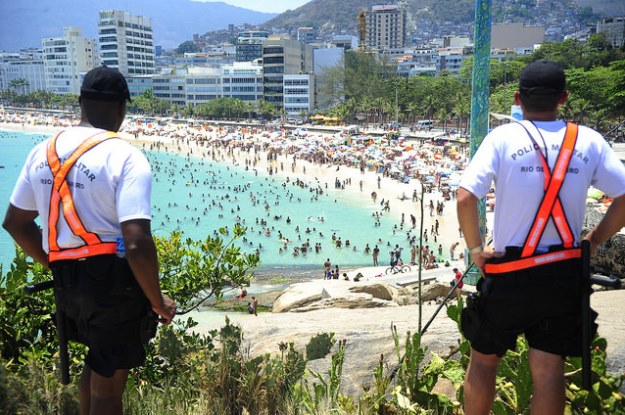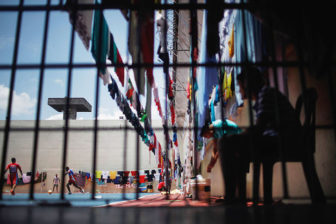A civil society group is resisting government efforts to restrict access to some Rio de Janeiro beaches, announcing a plan for thousands of the city’s favela residents to travel en masse to a popular Ipanema beach on October 4.
Papo Reto Coletivo, an independent media group based in Rio’s expansive Complexo do Alemão favela, is coordinating the event to promote representation of favela residents on beaches in Rio’s wealthy southern neighborhoods. On their Facebook page, the group says, “We are going to invade OUR beach…we work and pay taxes.” Over 6,000 people say they will attend.
The event comes in the midst of a plan, called Operation Summer, to increase the military police presence on Rio de Janeiro’s tourist-heavy southern beaches. The Rio de Janeiro state government said in a tweet that their aim was “to guarantee that the beach belongs to everyone.” Not all the city’s residents will feel welcome.
A spate of weekend beach robberies in September, largely committed by groups of teens and preteens, sparked a crackdown by the government, which is eager to rein in street crime as Rio prepares to host the Olympic Games in 2016. Some fear the robberies – known to Brazilians as arrastões (big drags) – will inflame existing prejudices against the city’s poor and black residents, and make it harder for those from the favelas to access the beach.
They have reason to be concerned. In August, two members of the military police stopped a bus of young people traveling from poor neighborhoods in northern Rio to the city’s high-end Zona Sul. Events such as this have moved Papo Reto to call for action. Of the 15 adolescents on board, 14 were black, prompting accusations of racial profiling and a mixed response from city and state officials. Some, such as the state governor and public security secretary, defended the officers’ actions as “preventative” measures.
Papo Reto’s efforts come as some Zona Sul residents have tried to intimidate young people from the city’s periphery to stop them from coming to the beaches in their neighborhoods. After last month’s arrastões, photos and video footage circulated online and on local news showing enraged Copacabana residents breaking windows of buses filled with beachgoers, presumably returning home to northern Rio. Folha de São Paulo reported that the group of roughly thirty men was organized through the smartphone application WhatsApp. One of those involved told the paper that the police even supported their vigilantism.
Such expressions of exasperation present a challenge to police who, amid a lagging economy and a spike in street crime, are struggling to ensure that the city’s public spaces truly do belong to all of Rio’s residents.









